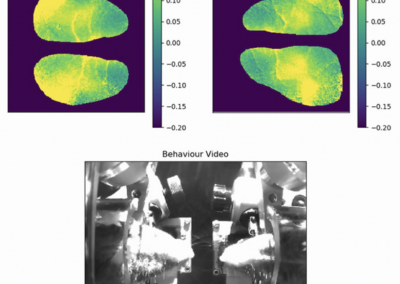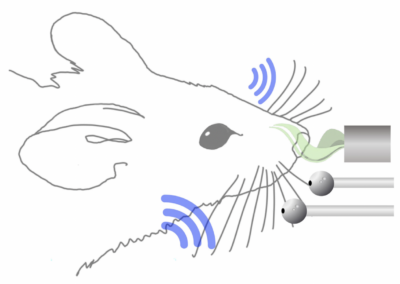The Kelly Tan research group at the University of Basel, Switzerland investigates the neural correlates of motor behavior, focusing on the role of the basal ganglia in controlling various aspects of motor actions. To aid in their investigation, the group has developed an open-source nose-poke system utilizing an Arduino microcontroller, several low-cost electronic components, and a PVC behavioral arena. These researchers have shared the following information about the project: Learn more about how the Kelly Tan Research group uses this tool to study the role of basal ganglia in controlling motor action.4 Port Nose Poke
Kelly Tan Research Group
Have questions? Send us an email!
“Operant behavioral tasks for animals have long been used to probe the function of multiple brain regions. The recent development of tools and techniques has opened the door to refine the answer to these same questions with a much higher degree of specificity and accuracy, both in biological and spatial-temporal domains. A variety of systems designed to test operant behavior are now commercially available, but have prohibitive costs. Here, we provide a low-cost alternative to a nose poke system for mice. Adapting a freely available sketch for ARDUINO boards, in combination with an in-house built PVC box and inexpensive electronic material we constructed a four-port nose poke system that detects and counts port entries. We provide a low cost alternative to commercially available nose poke system. Our custom made apparatus is open source and TTL compatible. We validate our system with optogenetic self-stimulation of dopamine neurons in mice.”
This research tool was created by your colleagues. Please acknowledge the Principal Investigator, cite the article in which the tool was described, and include an RRID in the Materials and Methods of your future publications. RRID:SCR_021592
The Kelly Tan research group provides further documentation for this device, including SketchUp design files, Arduino source code, and a full bill of materials, as supplementary data in their 2016 paper.






